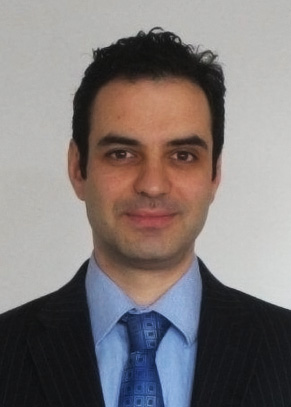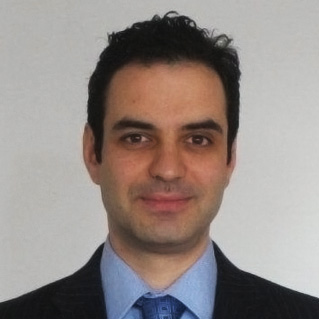 In 2010, Judge Michael Corriero, at the time the executive director of Big Brothers Big Sisters in New York City, decided to start something new. He founded an organization whose mission was to end New York’s practice of trying children as adults, The New York Center for Juvenile Justice.
In 2010, Judge Michael Corriero, at the time the executive director of Big Brothers Big Sisters in New York City, decided to start something new. He founded an organization whose mission was to end New York’s practice of trying children as adults, The New York Center for Juvenile Justice.
The goal was to repeal New York’s juvenile offender law, which permits trying children as young as 13 as adults when they are accused of serious offenses, and raise the age of criminal responsibility in the state to 18. He envisioned a model of justice that would provide lengthy confinement for only a very small number of minors who posed danger to society due to underlying issues the system couldn’t address.
Under his model of justice, no minor would be held in an adult facility, all minors would have access to rehabilitative services that would address the issues that may have led to an arrest, and minors would not carry the indelible stigma of a criminal conviction for mistakes made at a young age.
Over the last four years, four unique opportunities for reform presented themselves. They were not part of our vision when we started the Center, but became viable as result of our pursuit of comprehensive reform. By sharing these achievements, I hope to encourage juvenile justice advocates around the nation who may find themselves in jurisdictions where a comprehensive legislative agenda may be stalled for the moment, and may be looking for alternative opportunities to make a difference.
Dialogue and education
We had many conversations with judges and leaders in the state judiciary about our legislative reform proposals. We realized there were many judges in New York’s adult criminal courts who wanted to make a difference in children’s lives, even under New York’s current legislative framework.
We provided judges across the state with a full day of training on strategies that empowered them to address children’s cases in a developmentally sensitive manner despite the law’s inherent limitations. The model we offered was informed by the Manhattan Youth Part, a special court Judge Corriero established to deal exclusively with the cases of all 13-, 14- and 15-year olds arrested in Manhattan for serious offenses and charged as adults under the juvenile offender law. That court convened service providers from the community. It offered youth an opportunity to participate in these services and earn youthful offender treatment, resulting in a sentence of probation and sealing of the criminal record.
We ended each training with a roundtable discussion where judges shared the challenges they faced in addressing the cases of children tried as adults. They were able to share ideas on how they could improve justice for children and inspire youth to learn from their mistakes. We feel these trainings are playing a part in a cultural shift in the judiciary, as judges are willing to change the lense under which they view adolescents who come into contact with the system.
Sharing expertise in related conversations
During our advocacy for legislative reform, we were approached by groups interested in related legislative agendas who could benefit from our expertise. We advised advocates interested in increasing access to mental health services, advocates working to reduce wrongful convictions and advocates working to address the collateral consequences of criminal convictions.
We were approached by Sanctuary for Families, an organization committed to fighting sex trafficking in New York state. They, together with the New York State Anti-Trafficking Coalition, were concerned that 16- and 17-year-olds in New York arrested for prostitution were not protected under the state’s safe harbor laws and were exposed to criminalization.
We developed legislation that prevented these minors from getting a criminal record and gave them access to services; it was passed by the legislature and signed into law. The statute categorizes such a minor as a “sexually exploited child.” It represents the first time the New York legislature recognized 16- and 17-year-olds who come into contact with the justice system as the children they are.
Harnessing the creativity of a new generation
During our four years of advocacy, the judge was speaking at universities all across the state. After each presentation, we would be approached by students who wanted to join the cause and intern for us. He wanted to harness this energy and told me, “Turn away nobody.”
This is how we developed what is now known as the Center’s Juvenile Justice Academy. Each summer we became home to graduate students from a variety of disciplines, including law and social work. The students were able to produce original research, write opinion articles on the practice of trying children as adults, research the constitutionality of New York’s juvenile offender law and organize community forums across the city.
One of their brilliant contributions was to write the script for a short video titled “Because I’m 16.” We later partnered with filmmaker T.J. Parsell, a human rights activist and author, who took the students’ vision to the next level. The video has already gotten more than 16,000 views:
Participating in implementation efforts
The Center has been hosted by the New York Foundling, an organization that has been providing family-based therapy to youth in New York’s Family Court. The Foundling's approach was to look at the youth in the system in the context of his or her family and provide caregivers with the support they needed.
The judge suggested to the Foundling they expand their services to the adult court, due to the dearth of mental health services available there. The Center acted as a consultant to this project. This collaboration gave a meaningful second chance to dozens of minors. Moreover, it has informed much of our advocacy work, as through the implementation process we were able to identify gaps and opportunities in the system.
The four opportunities mentioned above were not part of the Center’s original plans. They presented themselves as a result of passionate work toward a greater goal. That passion and its fruits brings me back to a quote by William J. Brennan Jr., the late associate justice of the Supreme Court, which the judge recites at the end of each judicial training:
''If due process values are to be preserved in the bureaucratic state of the late 20th century, it may be essential that officials possess passion — the passion that puts them in touch with the dreams and disappointments of those with whom they deal, the passion that understands the pulse of life beneath the official version of events.”
Yuval Sheer is deputy director of The New York Center for Juvenile Justice.
